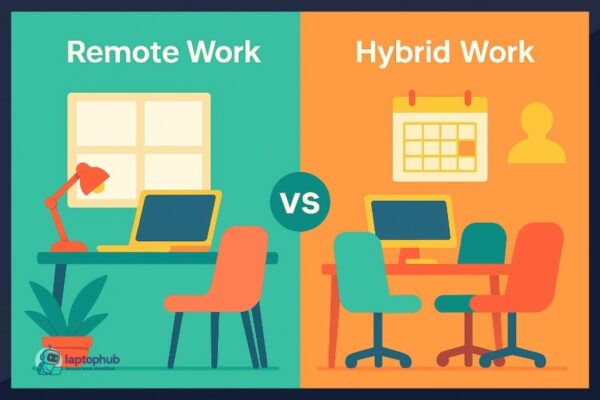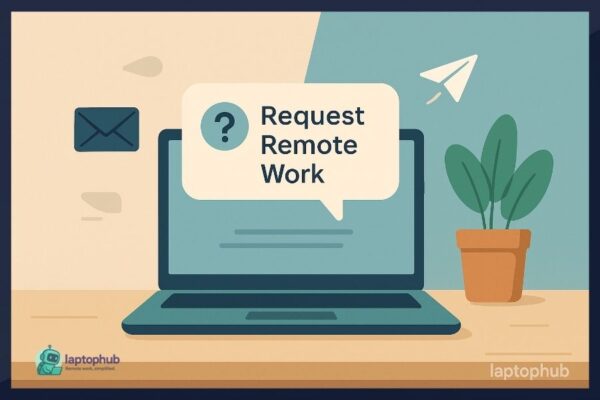Remote jobs are no longer just for tech bros or digital nomads. These days, people are working from home (or a beach, or a cabin) across all kinds of industries — customer service, marketing, admin, design, you name it.
But what if you’ve got no experience?
Can you still land a remote job?
Absolutely.
You just need to shift how you present yourself, where you look, and how you show up.
This guide breaks down exactly how to get a remote job with no experience — step by step, no fluff.
💡Key takeaways:
- You don’t need formal experience to get a remote job — you need proof of skills through projects and portfolios.
- Entry-level remote roles exist across customer service, content, admin, and tech, and you can build skills for them quickly and affordably.
- Crafting a targeted resume, portfolio, and cold outreach message is key to standing out as a beginner.
- Consistency and smart job hunting through the right platforms, communication tools, and time zone awareness will increase your chances of getting hired.
Why Remote Work Isn’t Just for Experts Anymore
The remote job market has changed — fast.
Pre-2020, companies wanted five years of experience and a home office that looked like NASA. Now? They just want someone who’s reliable, can communicate well, and get stuff done without babysitting.
That’s great news for beginners.
If you’re just starting out, the path is simple:
- Pick a skill set that works remotely.
- Learn fast and build proof.
- Start applying and networking like it’s your job.
Let’s break it down.
1. Choose Your Path: What Can You Do Remotely?
First, pick a lane. You don’t need to stick to it forever, but you do need focus when starting out.
Here are common entry-level remote jobs that don’t require much experience:
- Virtual Assistant: Scheduling, inbox management, light admin tasks
- Customer Support Rep: Email, live chat, ticketing systems
- Content Writer: Blog posts, newsletters, website copy
- Social Media Assistant: Scheduling posts, replying to comments, basic content creation
- Transcriptionist: Turning audio into text (good for fast typists)
- Data Entry Clerk: Inputting info into spreadsheets, CRMs, databases
- Online Tutor or ESL Teacher: Teaching English or school subjects via Zoom
- Junior Web Developer: Front-end or WordPress sites (with basic HTML/CSS/JS)
Pro Tip: Pick something that matches your current strengths. Are you organized? Start as a VA. Good at writing? Try content. Analytical? Look at marketing or QA.
2. Build Skills (Fast, Free, and Focused)
Experience is good. Ability is better.
There are endless free resources online to build remote-friendly skills — skip the expensive bootcamps and start here:
Top Free Learning Platforms:
- Google Digital Garage – Digital marketing basics
- HubSpot Academy – Social media, email, CRM, and more
- FreeCodeCamp – Great for coding/web dev beginners
- Canva Design School – Graphic design for non-designers
- YouTube – Search literally anything: “How to use Asana for project management,” “How to write a cold email,” etc.
Important: Don’t just watch videos. Do the thing. Create sample projects as you go (you’ll need them later).
3. Create a Starter Portfolio (Yes, Even If You’re Brand New)
No one hires based on potential anymore. They hire based on proof.
If you’ve never been paid for your work, build your own proof:
- Write blog posts or articles and publish them on Medium
- Redesign a small website (even if it’s fake)
- Create a sample social media calendar for a pretend business
- Answer mock customer service tickets and write up a case study
- Record a screen share of you walking through a spreadsheet or process
Where to Host Your Portfolio:
- Notion: Fast, clean, and free
- Google Drive folder: Organized with labeled files
- Simple website: Use Carrd or Wix if you want something prettier
Include a short “About Me,” your skillset, and links to your work. Make it scannable, not fancy.
4. Nail the Resume (Focus on Value, Not Job Titles)
If your resume just says “barista” or “student,” no problem. Focus on transferable skills and projects.
What to include:
- Strong title: “Customer Support & Virtual Admin | Remote-Ready Professional”
- Skills list: Prioritize tools (Slack, Zoom, Google Workspace) and soft skills (organization, communication)
- “Projects” section: Link to your portfolio samples
- Remove fluff: Skip high school awards and outdated tech
Pro tip: Mention time management, self-motivation, or async communication — these matter a lot in remote teams.
5. Use the Right Job Boards (And Filter for Entry-Level)
Most job boards are flooded with high-skill roles. But some are better for beginner remote jobs.
Best Job Boards for Remote Beginners:
- Remote OK – Use filters to find “junior” or “entry-level”
- We Work Remotely – Clean layout, tons of categories
- Dynamite Jobs – Solid remote startups often post here
- Jobspresso – Curated remote jobs across tech, marketing, and support
- Remotive – Good for remote customer support and admin
- AngelList Talent (Wellfound) – Startup gigs, great for VAs and marketers
Also try:
- Reddit: r/forhire, r/WorkOnline
- Facebook Groups: Search “Remote Jobs for Beginners” or “[Your Skill] Freelancers”
Don’t just scroll. Set alerts and apply early. Remote roles get flooded fast.
🖥️Also Read: Remote Job Boards You Need to Bookmark Right Now
6. Time Zone Awareness and Communication Are a Must
Remote work sounds like freedom — but time zones matter.
Many remote teams still run on a fixed time zone (e.g. US Eastern or UK time). If you’re 10 hours ahead and can’t be online during overlap hours, it’s a deal-breaker for some roles.
What to do:
- Mention your time zone clearly in your resume or intro message.
- Emphasize flexibility — if you can work evenings or adjust hours, say so.
- Use tools like World Time Buddy to stay organized.
Also, brush up on async communication — tools like Slack, Loom, and Notion are the backbone of remote teams. Show that you know how to use them.
🖥️Also Read:
Best Remote Work Tools 2025: What Smart Teams Are Using Now
AI for Remote Work: How Smart Tools Are Reshaping the Workplace
7. Craft a Cold Email That Doesn’t Suck
Most job seekers copy-paste the same boring intro. Don’t do that.
Instead, write like a real human who wants to help.
Example for a Junior Marketer:
Subject: Quick idea for boosting your email signups
Hey [Name],
I noticed your site gets decent traffic but doesn’t have a signup form above the fold. I mocked up a version you could test — adding it could improve conversions by 10–20%.
I’m looking for entry-level marketing work and love helping small brands grow. Here’s a few other projects I’ve done: [link].
Open to a quick chat?
— [You]
8. Interview Tips for First-Time Remote Workers
Got the interview? Here’s what hiring managers want to know:
- Can you work independently?
- Are you tech-savvy enough for remote tools?
- Will you communicate clearly and consistently?
Prepare for:
- Questions about how you stay organized
- Scenarios like handling a tough customer via email
- Time zone or schedule alignment
Bonus points if you can name-drop tools like:
- Slack
- Notion
- Trello or Asana
- Google Workspace
- Zoom
9. Stay Consistent (Most People Quit Too Soon)
Getting your first remote job might take 30 applications. Or 80. That’s normal.
The key? Consistency.
- Track your apps in a spreadsheet.
- Follow up after 5–7 days if you don’t hear back.
- Tweak your approach if you’re getting ghosted.
Keep learning, keep showing up, keep applying. Someone out there needs exactly what you’re offering.
Frequently Asked Questions (FAQs)
Q1: Can I really get a remote job without any experience?
Yes — companies care more about whether you can do the work than if you’ve held a formal job title before. Proof through projects, training, or volunteering can be just as valuable.
Q2: What kind of remote jobs can beginners apply for?
Beginner-friendly roles include virtual assistant, customer support, content writing, social media assistant, transcription, and basic data entry.
Q3: How do I build a portfolio if I’ve never worked remotely?
Create sample projects, volunteer for small businesses, or document your learning progress — anything that shows you can do the job counts.
Q4: Which job boards are best for remote beginners?
Great starting points include Remote OK, We Work Remotely, Dynamite Jobs, Jobspresso, and even Reddit or niche Facebook groups.
Q5: How long does it take to land a remote job with no experience?
It varies, but with consistent effort, most beginners start seeing results within 30 to 90 days — especially if they focus on proof and outreach.
Final Thoughts: You Don’t Need Experience. You Need Proof and Persistence.
Getting a remote job with no experience isn’t about gaming the system. It’s about showing that you can do the work, even if you haven’t done it “professionally” yet.
Build proof. Create real value. Put yourself out there.
That’s how people break in — and it’s exactly how you will too.





